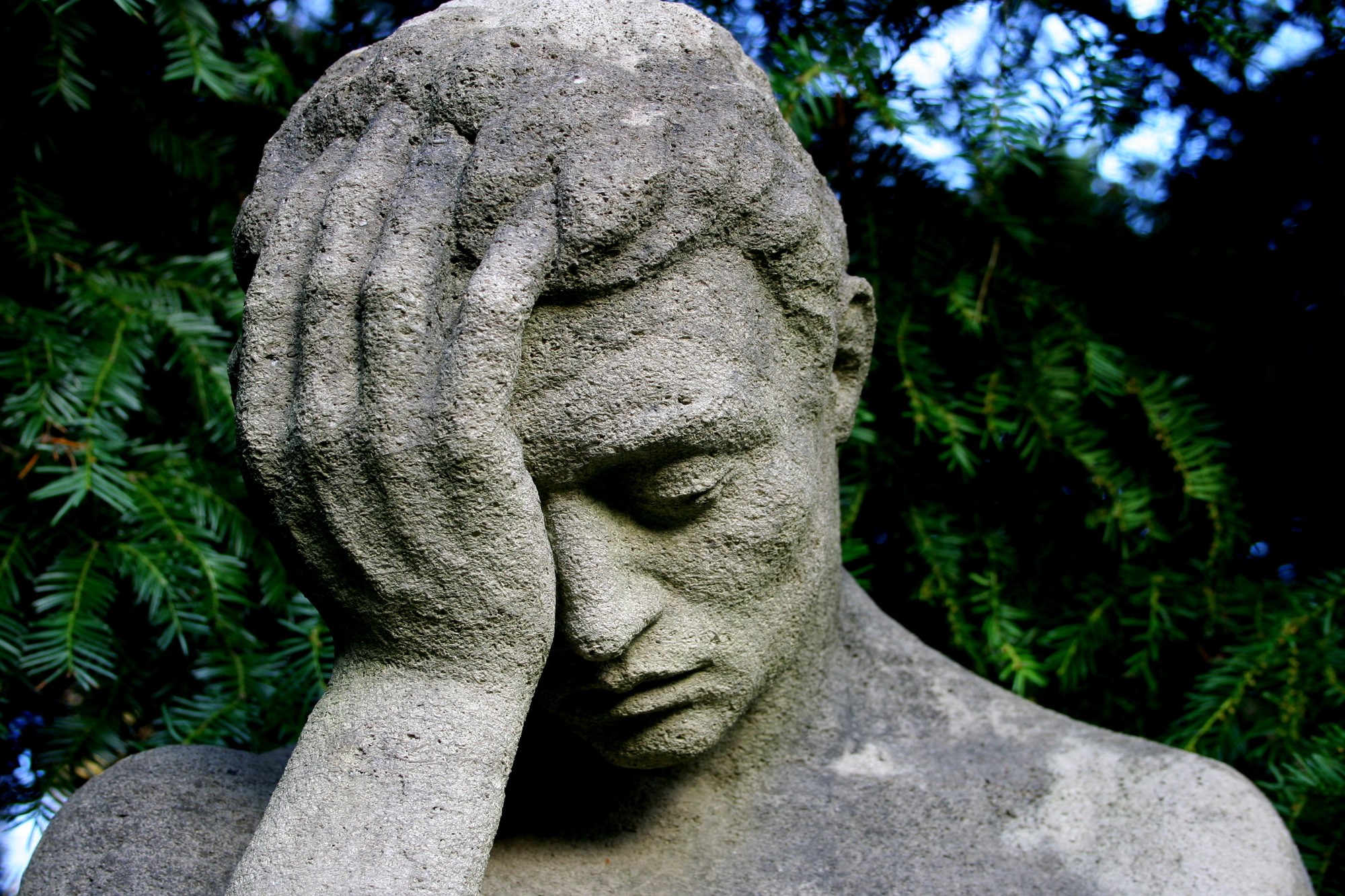Academic Freedom and the Kershnar Case: A Partial Dissent

American appellate court opinions often include one or more concurrences, where judges register their agreement with the majority or plurality’s decision but disagree in part or in whole with its reasoning. Judges are also free to concur with parts of the majority or plurality’s decision, but dissent to other parts. When this happens, it can be pretty unclear where the judge stands with respect to the majority or plurality opinion. As I read Rachel Robison-Greene’s excellent column about the Stephen Kershnar controversy, I felt something like this complicated patchwork of concurrence and dissent thread together in my mind. The following is an attempt to articulate these thoughts.
To quickly recap the controversy, late last month Kershnar, a philosophy professor at SUNY Fredonia, was interviewed for “Brain in a Vat,” a philosophy-themed podcast. In the interview, Kershnar claimed that adults having sex with children is not morally wrong. The argument he offered for this startling claim was fairly weak, as Robison-Greene shows in her column. Unfortunately, the interview has been removed from YouTube, which makes it difficult for people who haven’t watched it to evaluate the argument for themselves. In any case, clips of the interview went viral, and in response to the controversy, SUNY Fredonia barred Kershnar from campus or from contacting students pending the results of a formal investigation. Free speech advocacy organizations and not a few prominent academics have since protested SUNY Fredonia’s move on the grounds that it violates its own commitment to academic freedom, as well as First Amendment protections that apply to Kershnar as a state government employee.
Robison-Greene provides a clear summary of the academic freedom argument against sanctioning Kershnar, but I want to draw out a few strands that deserve closer attention. If society is actually committed to free inquiry in universities, it must be willing to tolerate academics questioning even its firmest convictions. Indeed, the case for academic freedom is arguably strongest with respect to those areas in which one viewpoint is overwhelmingly dominant, if not universal. It is here that a particular viewpoint comes to seem like the only possible viewpoint — where belief, claiming the mantle of self-evidence, petrifies into dogma. Examples from history are legion: the belief in the unsuitability of women for public life, or in the immorality of homosexuality.
It might be replied that surely, we know that pedophilic sex is wrong, just as we know that slavery is wrong. And even if we don’t know that these claims are true — and especially if, as some philosophers argue, these claims are not knowable, strictly speaking —why allow them to be publicly questioned given all of the deleterious effects that could result, as Robison-Greene plausibly argues? Here, I think, we come to the nub of the issue. The question is this: are the net benefits of allowing academics to freely inquire into the merits of any socially dominant opinion greater than the net benefits of requiring that someone — perhaps the academic herself, her academic department, or school administration officials — weigh up the costs and benefits of each line of inquiry ex ante before allowing it to proceed?
This is not an easy question to answer. Complicating matters is that some of the goods that can be obtained by free inquiry are arguably different in kind from those that can be obtained through censorship. But we can make a few general observations. First, it is very hard to know, ex ante, what the value of a line of inquiry is. It seems probable to me that questioning the moral wrongness of adult sex with children is, on net, a valueless or disvaluable line of inquiry. But my confidence that this is the case is too low to warrant quashing it ex ante. There are simply too many past examples of lines of inquiry that have seemed valueless or disvaluable ex ante to most people, but that have turned out to be enormously beneficial both epistemically and in terms of human welfare. Where the future is concerned, experience always seems to counsel humility.
Even if we were perfectly rational, the limitations on our knowledge would furnish a reason not to attempt to evaluate lines of inquiry ex ante. But we are not perfectly rational — far from it. In general, the more firmly held a belief is, the less disposed the believer is to entertain evidence that points to its falsity. This means that we are likely to systematically underrate the value of lines of inquiry that could threaten our deepest convictions. Thus, our knowledge of our own biases should make us even more skeptical of the possibility of accurately evaluating lines of inquiry ex ante.
The argument so far assumes that academic censors would act in good faith — that they would not use their authority to advance their own political agendas by, for example, interpreting the rules in such a way that lines of inquiry they disfavor for political reasons would be proscribed. This is far from clear. Moreover, given the inherent unknowability of the future value of lines of inquiry, empowering people to make decisions about which ones ought to be allowed based on a prospective cost-benefit analysis seems particularly likely to lead to abuses.
There is also the problem of the so-called “Streisand Effect”: in liberal democracies with robust civil societies, attempts to censor opinions actually tend to amplify them. The vast majority of “Brain in a Vat” episodes have view counts in the hundreds. Now, thanks in part to SUNY Fredonia’s attempt to punish Kershnar, his ideas have been discussed in dozens of news articles and blog posts, and a far larger number of tweets. It is likely that had the podcast dropped without comment, thousands who now know about Kershnar’s views would have never heard of him. Authoritarian governments with much greater control over the production and distribution of information might be able to censor successfully, but it is doubtful that in the United States, depriving someone like Kershnar of his platform will make his ideas disappear. Censorship via de-platforming might not even be a viable strategy for quashing objectionable claims.
Robison-Greene writes that “the existence of so much support for [Kershnar’s] case by so many (mostly powerful male) [academics] is likely to make victims of childhood sexual assault feel unsupported and potentially unsafe.” This might be true, but I think it’s worth interrogating why. If victims feel less supported when other academics support Kershnar, it must be either because they think (a) that such support is tantamount to approval for Kershnar’s ideas or (b) that pedophiles view such support as tantamount to approval for Kershnar’s ideas, and the consequence of their viewing it this way is that they will be emboldened to satisfy their sexual desires. Either way, the key idea here is that opposition to punishing Kershnar for his ideas implies support for his ideas. There is, indeed, something highly counterintuitive about the idea of hating what Kershnar says but fighting for his right to say it; it produces the same dissonant sensation as hating the sin and loving the sinner, or appreciating the artistic genius of a moral monster. Human beings have a well-documented aversion to ambivalence; academic freedom and similar rights require us to be ambivalent. If society had a stronger commitment to free thought and free speech, it might be easier for people to accept that supporting a speaker’s right to speak does not imply approval of his ideas.
Robison-Greene reminds us that speech can do real harm, in this case by potentially “empower[ing] [pedophiles] in their conviction that their behavior isn’t actually morally wrong, it’s just commonly viewed that way by society.” Too often, free speech advocates seem to deny that speech harms at all. Given that most of them also point to the U.S. Supreme Court’s First Amendment jurisprudence as a model for how to draw the boundaries of free speech rights, this is somewhat ironic. Even as it strengthened protections for speakers over the course of the last century, the Supreme Court never denied that speech can do serious harm. For example, if a state makes speakers potentially liable for intentional infliction of emotional distress because of what they say, that is fully compatible with the First Amendment. The Court has also held that the First Amendment does not bar liability for defamation. In carving out these exceptions from First Amendment protection, the Court tacitly acknowledged that speech can cause profound emotional and reputational damage.
At the same time, however, it’s important to recognize that when people exercise any of their important individual rights, harm to others frequently results. For example, criminal defendants have constitutional rights that, by making it harder for prosecutors to secure convictions, often harm crime victims. Unlike the citizens of some authoritarian states, Americans are free to move about the country and travel abroad. But this freedom comes at a cost: tens of thousands die on the roads every year, and travel produces substantial greenhouse gas emissions. Parents have extensive rights over their children, and this can cause enormous harm even when parents do not transgress the bounds of law.
Thus, a successful argument for constraining the right to freely inquire — incidentally, the right that SUNY Fredonia guarantees for all of its professors — must do more than show that exercising that right can cause harm. It must show, at minimum, that a policy of constraint both (a) is practically feasible and (b) would produce outcomes that are, on net, better than those that issue from permitting truly free inquiry. I think there are serious reasons to doubt both. That is why, although I agree in some sense with Robison-Greene that this is an “unfortunate case,” at the same time, the fact that our society supports someone who questions its deepest moral convictions is a profound collective achievement. And in the end, I do not think that cases like this pose a serious ethical challenge to our society’s commitment to academic freedom.




